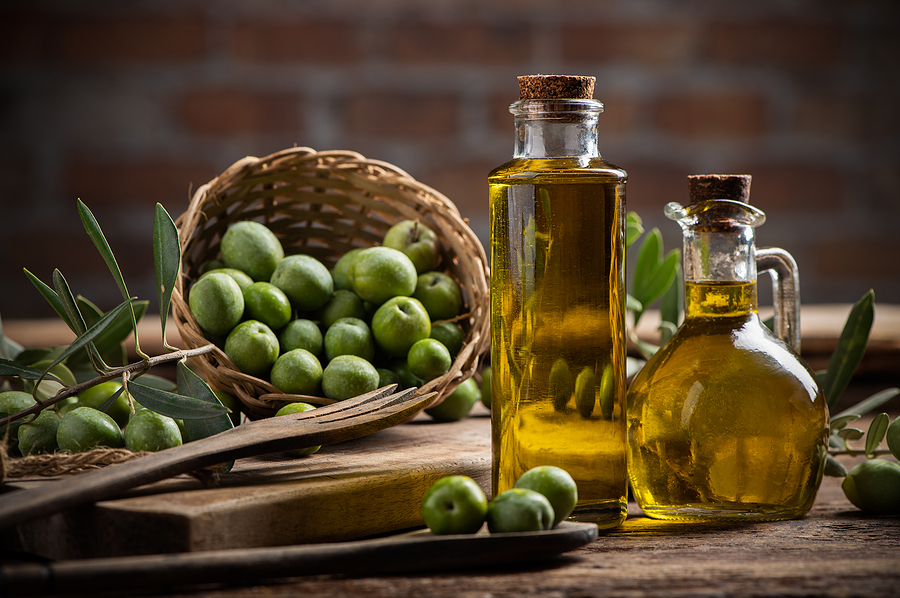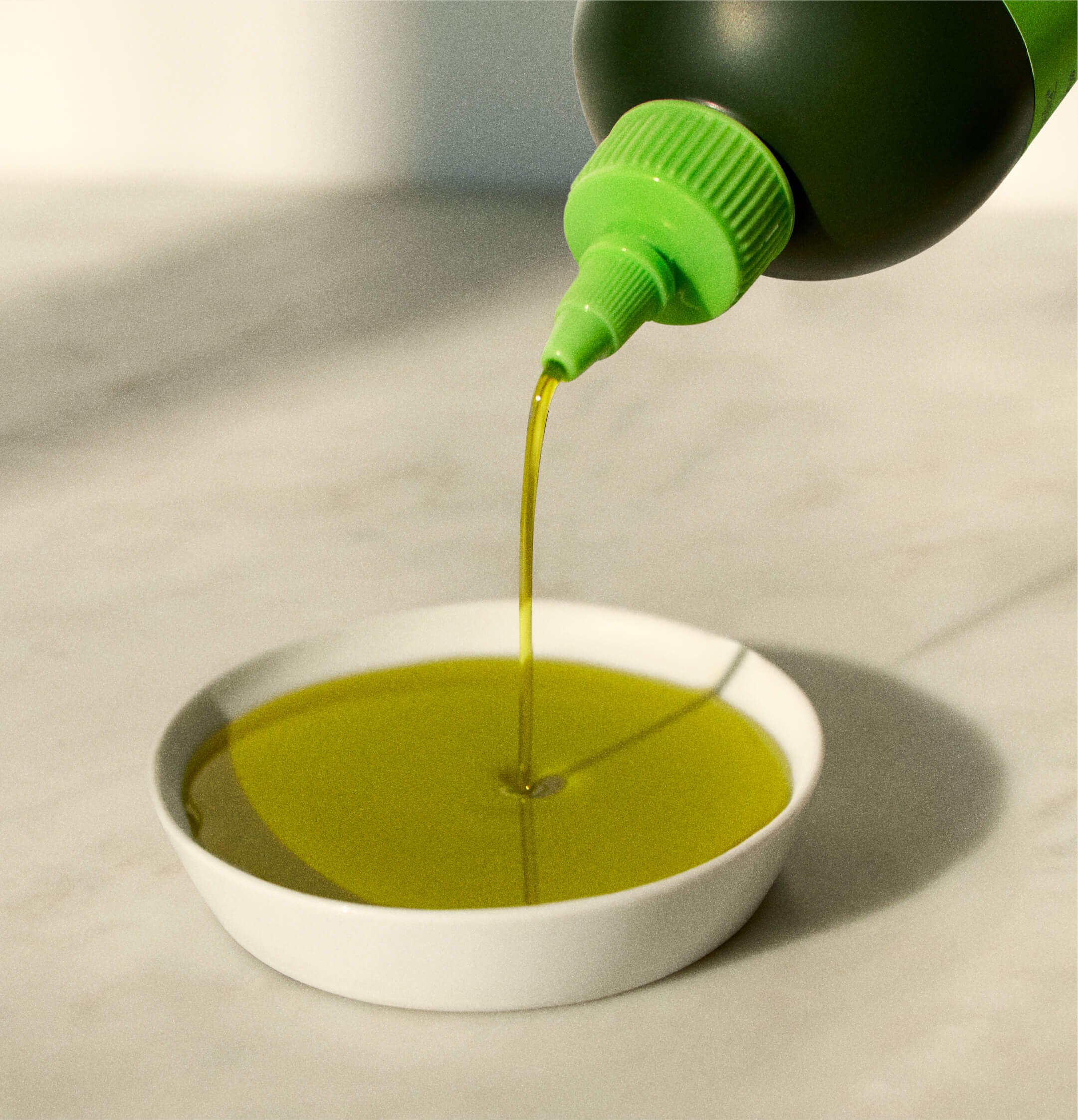Checking Out the Various Kinds of Olive Oil and Their Usages, Including Extra Virgin Olive Oil
The expedition of olive oil encompasses a varied range of kinds, each offering cooking applications and distinct flavors. Extra virgin olive oil, renowned for its remarkable high quality and health benefits, offers as a staple in several kitchens, yet it is only one aspect of this complex ingredient.
What Is Olive Oil?
Stemmed from the fruit of the olive tree, olive oil is a staple in Mediterranean food and a key ingredient in numerous culinary applications. This flexible oil is generated by pushing whole olives, resulting in a liquid that differs in flavor, color, and scent depending on the sort of olives used, the region of cultivation, and the removal process. Olive oil is primarily composed of monounsaturated fats, especially oleic acid, which is understood for its possible wellness benefits, including anti-inflammatory residential properties and cardio assistance.
In enhancement to its cooking usages, olive oil has a lengthy history of application in standard medicine and skincare, owing to its rich antioxidant material (extra virgin olive oil benefits). The oil is frequently used in dressings, marinades, and for cooking methods such as sautéing and roasting. Its distinct flavor account can boost the preference of different recipes, making it an important ingredient for both home cooks and specialist cooks
Moreover, olive oil is celebrated for its function in the Mediterranean diet plan, which is associated with numerous health advantages. As understanding of these advantages grows, olive oil continues to gain appeal worldwide as an essential element of a healthy way of living.
Sorts Of Olive Oil
Comprehending the various kinds of olive oil is vital for both health-conscious consumers and cooking enthusiasts. Olive oil is identified mainly based upon its extraction approach and quality, which dramatically influences its taste, health, and aroma advantages.

Light olive oil, in spite of its name, refers to a lighter taste and not reduced calories. It is suitable for those seeking a more refined preference in dressings and sauces. Additionally, there are flavorful olive oils instilled with herbs, spices, or citrus, which can boost recipes without the need for added spices.
Each kind of olive oil offers certain culinary objectives, and comprehending these differences permits consumers to make educated choices that straighten with their cooking designs and health objectives.
Additional Virgin Olive Oil
Bonus virgin olive oil (EVOO) is commonly considered as the finest olive oil readily available, popular for its abundant taste and many health advantages. To be classified as additional virgin, the oil must be created from fresh olives utilizing mechanical processes, without making use of solvents or too much warm. This thorough technique maintains the oil's natural tastes, antioxidants, and healthy and balanced fats, resulting in a product with a reduced acidity level of much less than 0.8%.
EVOO is bountiful in monounsaturated fats, especially oleic acid, which is connected to reduced swelling and boosted heart health. It likewise has polyphenols, effective anti-oxidants that may provide safety effects against chronic conditions. The taste account of EVOO can vary substantially relying on the olive variety and region of manufacturing, varying from grassy and fruity to durable and sharp.

Culinary Use Olive Oil

In food preparation, olive oil can be made use of for sautéing, toasting, and barbecuing, supplying a healthier option to butter or other fats. Its high smoke point makes it appropriate for different cooking methods, while its antioxidants contribute to a heart-healthy diet regimen. Showering olive oil over completed meals, such as pasta, fish, or grilled vegetables, can elevate flavors and include a touch of style.
In addition, olive oil plays a substantial function in cooking, where it can change traditional fats in recipes for bread and breads, giving wetness and a subtle preference. It likewise functions as a base for instilled oils, permitting cooks to explore tastes such as garlic, herbs, or chili, further increasing its culinary potential. On the whole, olive oil's adaptability makes it important in both home and specialist kitchen areas.
Picking Quality Olive Oil
When picking high quality olive oil, it's important to take into consideration a number of key variables that affect the product's health and wellness, fragrance, and flavor advantages. Firstly, choose additional virgin olive oil (EVOO), which is originated from the very first cool pressing of olives and has the highest degree of anti-oxidants and hop over to these guys useful substances. Look for oils that are accredited by identified companies, as this frequently makes sure adherence to stringent top quality standards.
The packaging likewise plays a substantial role in preserving the oil's stability. Pick oils saved in dark glass containers or tins to protect against light destruction. Take notice of the harvest date; fresher oils provide remarkable taste and dietary worth, so pick items that are within 18 months of their Our site harvest.
In addition, consider the origin of the oil. Top notch olive oils usually come from specific regions known for their distinct flavor profiles, such as Italian, Spanish, or Greek oils. Be aware of the taste; a good quality olive oil should have a balance of fruity, bitter, and sharp notes, showing its splendor and intricacy. By examining these aspects, you can guarantee you are selecting the most effective olive oil for your culinary needs.
Conclusion
In recap, the exploration of different kinds of olive oil exposes distinctive features and applications, with added virgin olive oil representing the peak of quality due to its low level of acidity and high antioxidant content. Recognizing the different ranges of olive oil allows for notified choices in cooking approaches, promoting healthier techniques while enriching the general gastronomic experience.
Acquired from the fruit of the olive tree, olive oil is a staple in Mediterranean cuisine and a crucial ingredient in different cooking applications.The most common types of olive oil consist of refined olive oil, pure olive oil, and light olive oil.Additional virgin olive oil (EVOO) is commonly pertained to as the highest high quality olive oil offered, popular for its rich flavor and many wellness benefits. Opt for additional virgin olive oil (EVOO), which is obtained from the initial cold pressing of olives and consists of the highest possible levels of antioxidants and useful substances.In recap, the expedition of numerous kinds of olive oil reveals unique attributes and applications, with added virgin olive oil standing for the peak of high quality due to its reduced level of acidity and high antioxidant web content.